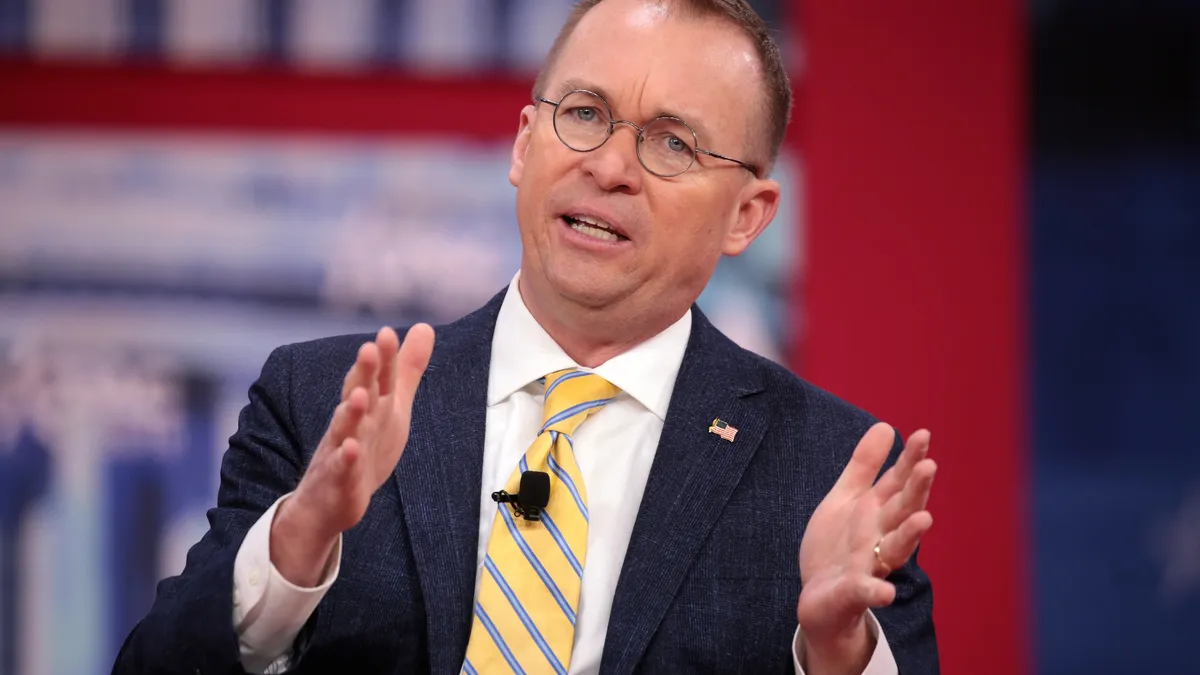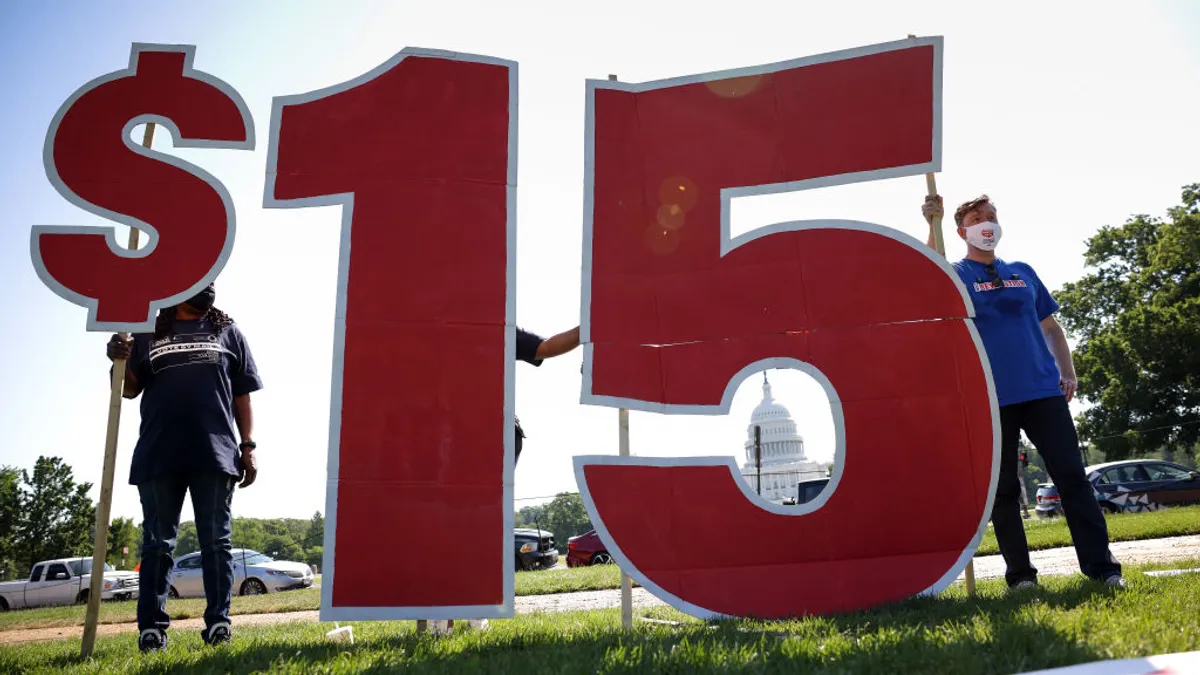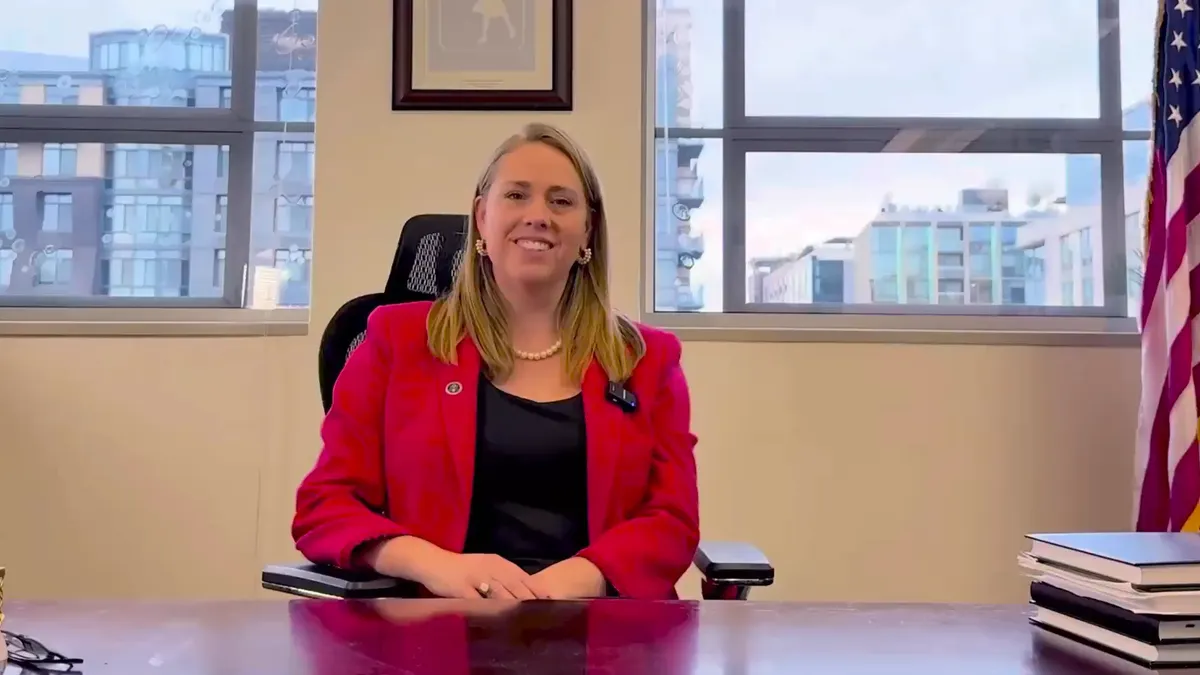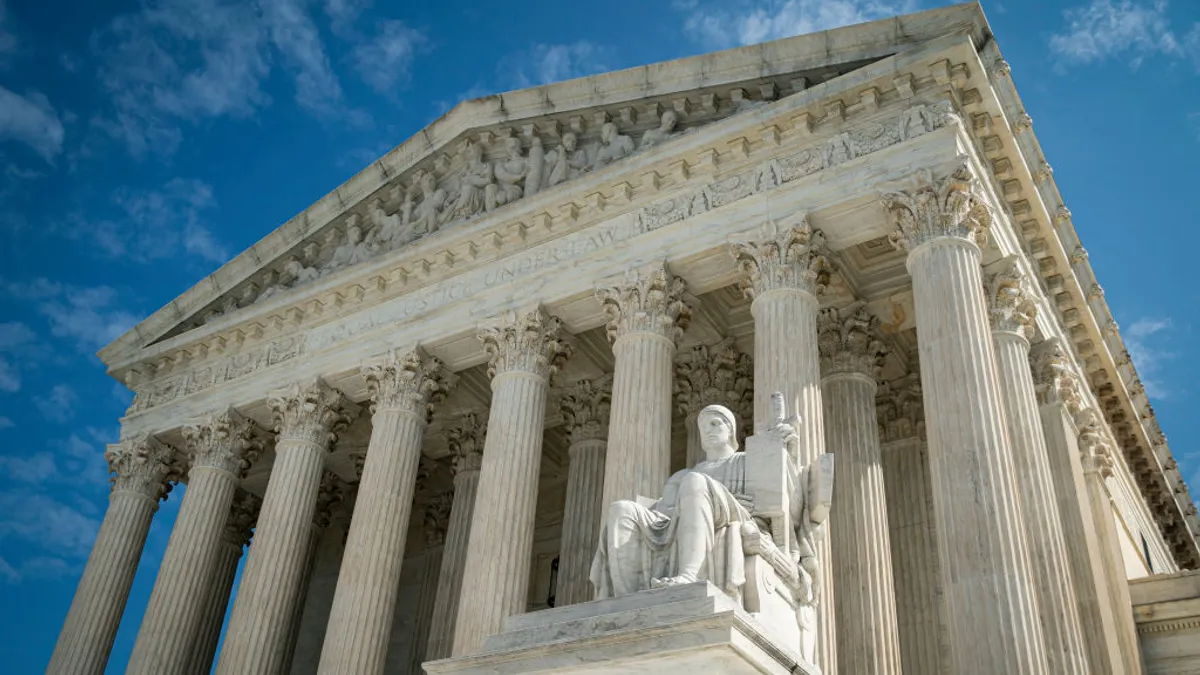Business advocates have pointed to immigration reform as a way to boost employers' talent strategies in a tough market, but they continue to face mixed messages from the Trump administration.
Its handling of the H-1B visa is a primary example: U.S. Citizenship and Immigration Services (USCIS) finalized last year changes to the way H-1B visa applications are processed. Those changes have led to higher denial rates for employers submitting H-1B petitions, according to a 2019 study by the National Foundation for American Policy.
The National Association of Manufacturers (NAM) recommended in 2019 that federal lawmakers remove limits on specific types of high-skilled, employment-based immigration by, among other things, vastly increasing the number of H-1B visas available to educated foreign professionals working in specialized occupations. Demand for H-1B visas typically exceeds the annual cap. Last year, though the H-1B cap for the 2020 fiscal year was set at 65,000, the agency received more than 200,000 applications, a year-over-year increase of 6%, HR Dive's sister site CIO Dive reported.
"The labor shortage is most acute in the STEM fields with American universities not producing enough U.S. born graduates in STEM fields to fill key roles at organizations," Richard Burke, CEO of Envoy Global, told HR Dive in an email. Manufacturers, for example, anticipate millions of openings over the next decade for positions ranging from software engineers and operational managers to supply chain workers and scientists, according to a 2018 NAM report.
Despite the apparent disconnect between administration policy and employers' needs, White House officials — including President Donald Trump — have periodically signaled agreement on the need to reform the nation's immigration system to better attract foreign talent. The latest such instance occurred during a Feb. 19 speech by acting White House Chief of Staff Mick Mulvaney, who told attendees at a private event that the U.S. "need[s] more immigrants," according to The Washington Post.
"We are desperate — desperate — for more people," Mulvaney reportedly said. "We are running out of people to fuel the economic growth that we've had in our nation over the last four years."
Sources who spoke to HR Dive about the context behind Mulvaney's words emphasized that while the chief of staff's sentiments may be encouraging for employers, there is still a lot of work to do to achieve the kind of reform employers support.
The Trump administration's record
The divide over immigration reform in the business community extends to some of its largest players, including the U.S. Chamber of Commerce. In 2019, Neil Bradley, the Chamber's executive vice president and chief policy officer, said in a statement that the White House's immigration efforts "spark a much needed debate on reforming our nation's immigration laws and improving our nation's security."
Certain proposed reforms drew pushback from the organization, however. The Chamber was one of several that opposed Trump administration efforts to end the Deferred Action for Child Arrivals program, for example.
Other elements, like Trump's 2017 "Buy American and Hire American" executive order, were disappointing to some in the employer community, Rebecca Bernhard, partner at Dorsey & Whitney, told HR Dive in an interview. "That's a step backwards from what we usually expect on the business side," she said.
Periodically, Trump has acknowledged the need for skilled immigrant workers, as he did during a 2019 press conference: "We have to let these great, brilliant companies have the smartest people in the world." Though those remarks surprised some observers, employers are still waiting for movement on issues including expedited visa application filing, annual green card allotment reform and increased options for work-based visas.
A step in the right direction?
Bernhard said she was "heartened" by Mulvaney's comments last month. "Certainly my personal reaction was 'thank you,' thank you for acknowledging the irrational disconnect we've been trying to acknowledge for decades," she said.
Burke likewise viewed Mulvaney's words as "entirely consistent" with Envoy Global's research of the role of immigration in employers' talent strategies. Burke said his firm's 2020 Immigration Trends Report, which surveyed 443 HR professionals, found that most employers plan to either increase their headcount of foreign employees or maintain the same such headcount this year.
"At the highest level, Mulvaney's comments echo what business leaders have been in agreement on for years: legal immigration helps U.S. employers and the overall economy," Burke said.
Yet, the debate over high-skilled immigration is marked by concerns that employers are passing over qualified U.S. citizens and instead, for example, outsourcing those positions to H-1B visa holders.
Bernhard and Burke argue that's not the case. Businesses that employ H-1B visa holders, Bernhard said, are subject to rules stipulating that they will pay visa holders wages that are at least equal to the actual wage paid by the employer to other workers with similar experience and qualifications, or the prevailing wage for a given occupation.
Throw in the associated filing and anti-fraud fees, Bernhard added, and it often becomes more expensive for U.S. employers to employ visa holders than U.S. citizens.
U.S. universities just aren't producing enough U.S.-born graduates in the science, technology, engineering and mathematics (STEM) fields to meet employer demand, Burke said. "In their place, foreign students have made up the majority of STEM programs in the U.S. for years representing over half of new enrollees in graduate engineering and computer science programs," he added, citing a 2019 report by the Council of Graduate Schools and the Graduate Record Examinations Board.
Given the shortage, Bernhard said her clients are instead opting to simply leave positions unfilled, or otherwise offering tuition reimbursement benefits to encourage employees who are lower on the "skills hierarchy" to go back to school and earn advanced degrees. Others, she said, are opting to experiment with apprenticeships — a favorite solution of the Trump administration's.
But even these strategies aren't meeting demand fast enough. According to Bernhard, employers aren't so much preferring foreign talent over U.S. workers as they are looking for educated candidates wherever they can find them. "They're reluctantly looking for foreign workers," she said, noting as an example that her clients in the construction industry "can't find enough people with a civil engineering degree to come forward."
The outlook
Mulvaney's words, at least, give Bernhard some hope that the Trump administration will consider support for raising the cap on H-1B visas. But, she said, "the pessimist in me doesn't think this will happen."
There is still some hope that the administration's shared sentiment on the need for highly skilled immigrant workers will outweigh officials who call for more restrictive policies, Burke said, but this is far from certain.
"Mulvaney's comments are a clear sign that there are some people in the current administration who are thinking critically about immigration and the ways in which foreign workers contribute to the economy," Burke said



















